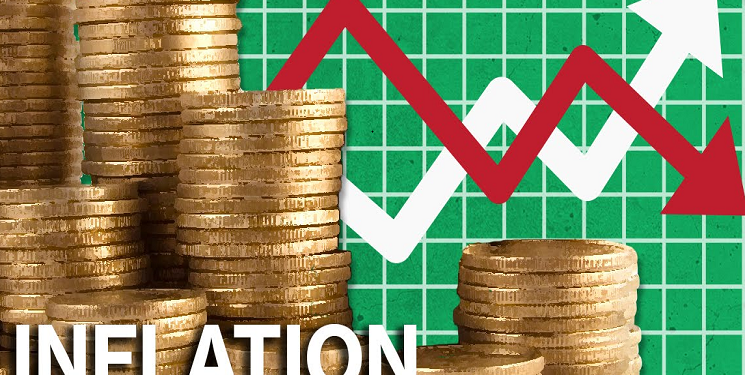Inflation is one of the most familiar words in economics or the economy. Inflation is the rate of increase in the prices of goods and services over a certain period, usually a year. In Nigeria, inflation data is released by the National Bureau of Statistics monthly. Some countries have high inflation rate while others have very low inflation such as UK with 1% inflation rate.
In a broad measure, Inflation can be used to measure the overall increase in prices or the increase in the cost of living in a country. However, it can be narrowed to specific goods and services such as food, transport, communication etc.
Measuring Inflation; to measure the average consumer’s cost of living, government agencies conduct household surveys to identify a basket of commonly purchased items and track over time the cost of purchasing this basket. The cost of this basket at a given time expressed relative to a base year is the consumer price index (CPI), and the percentage change in the CPI over a certain period is consumer price inflation, the most widely used measure of inflation.
The CPI basket is mostly kept constant over time for consistency, but is tweaked occasionally to reflect changing consumption patterns—for example, to include new hi-tech goods and to replace items no longer widely purchased.
The standard of living of a household depends on the household income, as the income determines what they can afford to purchase. In a country with increasing inflation such as Nigeria, the purchasing power of consumers are reduced inevitably due to everyday changes in the prices of goods. This is because increase in the prices of goods or services does not go in line with the increase in household income especially contract-based wages.
Read more; Purchasing power declines further in Nigeria as Inflation rate rises for 11th consecutive time
Inflation erodes the value of cash in hand or cash at bank, as the same amount of money can no longer purchase the same quantity/quality of goods or services.
Effect of Inflation on Borrowers and Lenders
A borrower who pays a fixed interest rate of 10% would benefit from 10% inflation, because the real interest rate (the nominal rate minus the inflation rate) would be zero. Higher inflation would even make it easier for the borrower to service this debt, provided that the borrower’s income keeps up with inflation.
On the other hand, the lender’s real income, will be negatively affected by increase in inflation because the purchasing power of the money he is being paid has been greatly reduced. This is because inflation was not factored into nominal interest rates.
Have you read?
- Shocking Details of Nigeria 2020 revised Budget
- Understanding Speculation in financial market trading
- TESLA surpasses Walmart and over 490 S&P 500 Index companies in Market value
Inflation has plunged countries into long periods of instability. Some countries, have grappled with high inflation in the past while others are struggling with it in the present and in some cases; hyperinflation.
Hyperinflation occurs when inflation rate is 1000% or more in a year. In 2008, Zimbabwe experienced one of the worst cases of hyperinflation ever, with estimated annual inflation at one point at 500 billion percent. Such high levels of inflation have been disastrous, and countries have had to take difficult and painful policy measures to bring inflation back to reasonable levels, sometimes by giving up their national currency, as Zimbabwe has.
Some countries currently grappling with high rate of inflation are
- Venezuela – 19,906 (Hyperinflation)%
- Zimbabwe – 255%
- Argentina – 53.55%
- South Sudan – 51.19%
- Sudan – 50.99%
The inflation rate in Nigeria is 12.82% according to the latest report released NBS. Nigeria has the fifteenth largest inflation in the world according to Statista
Although high inflation hurts an economy, deflation, or falling prices, is not desirable either. When prices are falling, consumers delay making purchases if they can, anticipating lower prices in the future. For the economy this means less economic activity, less income generated by producers, and lower economic growth.
Most economists now believe that low, stable, and—most important—predictable inflation is good for an economy. If inflation is low and predictable, it is easier to capture it in price-adjustment contracts and interest rates, reducing its distortionary impact.
Causes of inflation
Increase in supply of money relative to the size of the economy (quantity theory of money); this will result in more money chasing fewer goods, thus prices will hike and value of money will diminish.
Pressure on demand or supply part if the economy is disrupted. Supply shocks can be caused by natural disasters or increased cost of production (as is partly the case in Nigeria due to increased cost of raw material importation).
On the other hand demand shocks can be due to increased government spending, lower interest rates or stock market rally, or expansionary policies that will increase the disposable income of the people, thus boosting overall demand. If, however, this increase in demand exceeds an economy’s production capacity, the resulting strain on resources is reflected in “demand-pull” inflation.
Expectations also play an important role in determining inflation. If people or firms anticipate higher prices, they build these expectations into wage negotiations and contractual price adjustments (such as automatic rent increases).
How policymakers deal with inflation
According to the International Monetary Fund (IMF), the right set of disinflationary policies, those aimed at reducing inflation, depends on the causes of inflation. If the economy has overheated, central banks—if they are committed to ensuring price stability—can implement contractionary policies that rein in aggregate demand, usually by raising interest rates. Some central bankers have chosen, with varying degrees of success, to impose monetary discipline by fixing the exchange rate—tying the value of its currency to that of another currency, and thereby its monetary policy to that of another country.
However, when inflation is driven by global rather than domestic developments, such policies may not help. In 2008, when inflation rose across the globe on the back of high food and fuel prices, many countries allowed the high global prices to pass through to the domestic economy. In some cases the government may directly set prices (as some did in 2008 to prevent high food and fuel prices from passing through). Such administrative price-setting measures usually result in the government’s accrual of large subsidy bills to compensate producers for lost income.
Central bankers are increasingly relying on their ability to influence inflation expectations as an inflation-reduction tool. Policymakers announce their intention to keep economic activity low temporarily to bring down inflation, hoping to influence expectations and contracts’ built-in inflation component. The more credibility central banks have, the greater the influence of their pronouncements on inflation expectations.
Written by;
Ifunanya Ikueze





















































